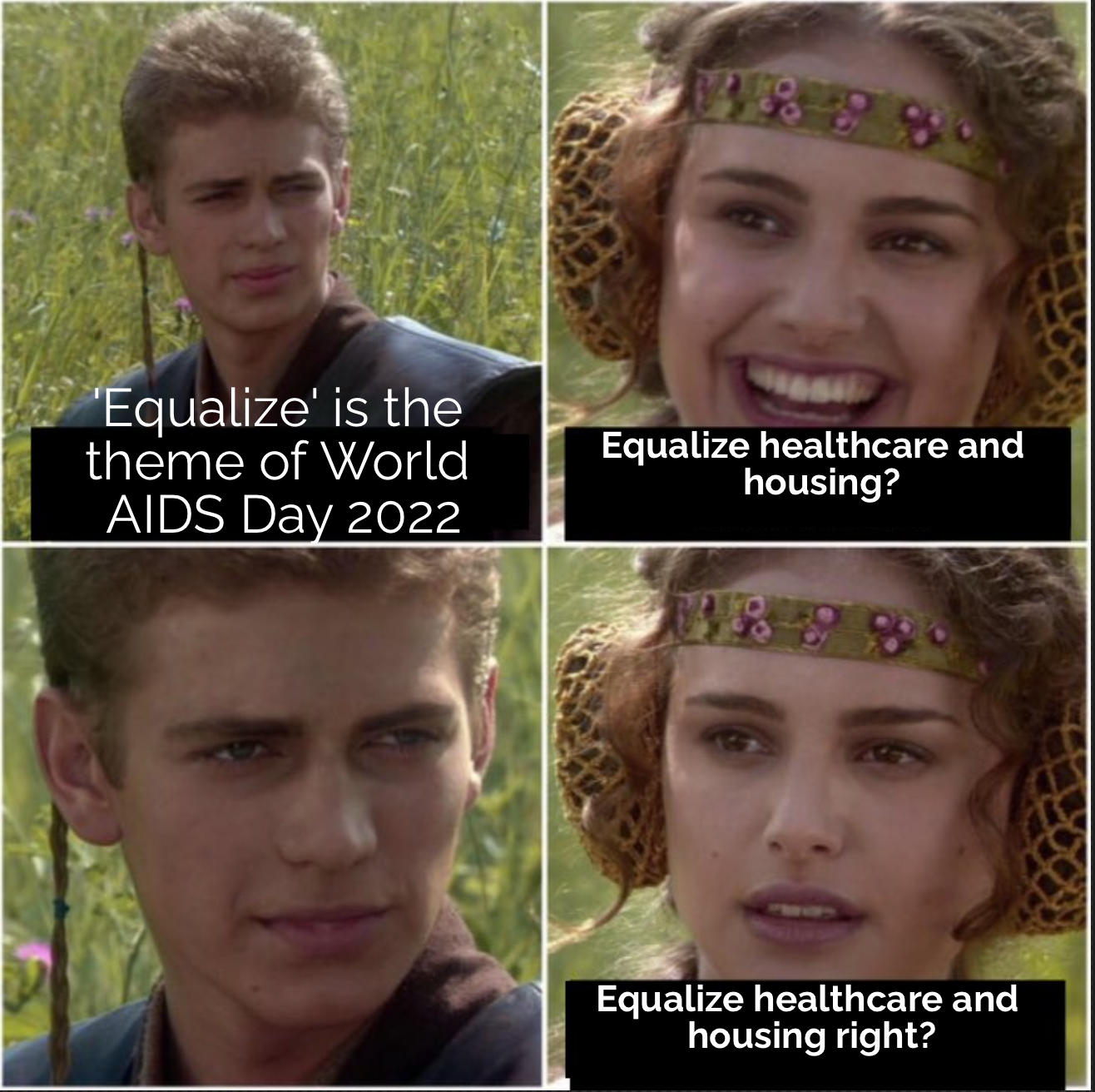World AIDS Day 2022
On World AIDS Day Thursday 1 December, we host our annual Guest Blog from Richard Carson, CEO of ACET Ireland.
The theme of World AIDS Day 2022 is “Equalise.”
The slogan is a call to action with UNAIDS naming a range of inequalities that are acting as barriers to ending HIV. The testing and treatment technologies already exist to stop the spread of the virus and if these barriers can be overcome then it will be no more.
Most people will agree with this call, I mean who really wants an epidemic that took the lives of tens of millions of people to continue? Yet the fine print and areas addressed in the social media materials suggest a deeper challenge. “Fight Racism”, “People before Profits” , “Let Communities Lead” and “Health for all: End Fees” are among the calls that resonate. They provoke us to reflect on our own actions and whether this call to equalise will be taken seriously.
In 2019, the team at TheBody researched 50 agencies across the USA and explored the barriers to ending HIV. The results took many by surprise. One theme stood out as a consistent barrier - the housing crisis. Again and again it was not the availability of medication, testing or prevention methods that workers named, but how increased rental and housing costs were driving people out of the safe and secure settings where medication adherence could be assumed. The USA has its own particular context of urban gentrification and the legacy of red lines and segregation. Ireland is different of course though it is likely that in the area of ethnicity we may find common threads.
Our treatment of the Traveller community over a century provides a bedrock of discrimination and exclusion, while institutions like Direct Provision and the racial stratification of the Irish labour market are having no small impact on how ethnicity and housing interact.
A similar story is emerging with community spaces where, for example, migrant-origin churches have faced eviction from city centre venues to the margins and now face remote-only options as rental prices are hiked again. In many cases the impact falls on those who have migrated from countries of generalised HIV epidemic and so a triple-whammy of inequality is at work.
The greed and policies of the much of the Global North were what led to the poverty that drove the HIV epidemic in much of the Global South. The migration of those from countries of generalised epidemic to Ireland is often and increasingly resisted as a doubling-down on scarcity can be found in the comments sections on social media and in the protests at migrants’ presence.
Then, thirdly, we insist on maintaining a one-way understanding of integration through which the burden is again laid on those most burdened to find their own way to inclusion, rather than creating spaces with one another where burdens for change are truly shared.
We do know that the language of an Irish ‘housing crisis’ is inadequate for our current predicament. Indeed it is questionable whether the word ‘crisis’ should be used at all, not because of the scale of the problem but because the origins of that word are from the field of medicine where a ‘crisis’ is a decision point, a fork in the road that hopefully leads to healing. There is little sense that such a description can be applied to the Irish housing disaster. Maybe a crisis is exactly what we need.
The theologian Willie Jennings prophetically provokes us into one. He recently stated that every time you go from one neighbourhood and enter another and see inequality and say 'that is the way it is' you are calling that which is demonic and obscene natural. Our encounters with places are not passive ones and the housing disaster and our inertia in response to it did not happen by accident.
I was giving a lecture to the Health Psychology class at the National College of Ireland this week. We discussed how a place can be wounded by people, how this wounding was exemplified in the AIDS Crisis of the 1980s and 1990s in parts of Dublin and how by being present in a place communities can encounter care and healing. We talked about how a group of women in one community in Dublin grieved the loss of their young adult children to AIDS and created quilts in their memory. I showed the class the delicate stitching of the Quilt of Hope and other commemorative quilts that have been created in that place and how quilting is still continued by core members 29 years later.
This World AIDS Day I will drop into the opening day of a new community café in that place, led by local residents with the support of some local coffee roasters. Then I will drop into a bookshop to pick up, on release day, a copy of a new publication by some friends that looks at how, in local settings, we can respond to the great challenge of climate change - the great wounding of a place that we are currently witnessing. If justice rolls down like a river, then the tributaries are plentiful and we have much to learn from one another,
And then there is Advent. We wait for a wild and hidden disruption to our predicaments that few may witness but many encounter. It will be in the small and local settings that hope will come, as it has always been with the birth of the healing of the nations.


